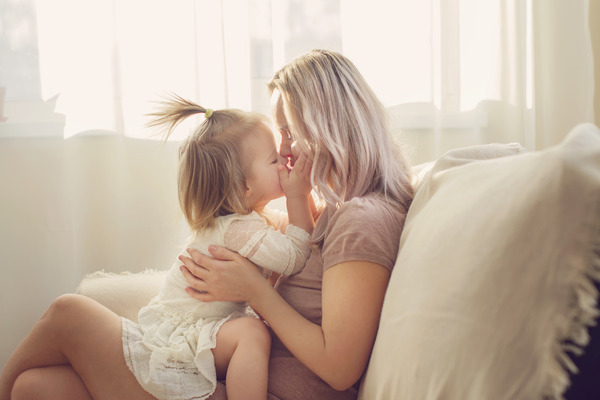If we look back about 100 years, for example, and observe this entire period, we can see how much perception and beliefs regarding parenting have changed. The most common a few decades ago was an authoritarian style in which the will or wishes of minors were practically not taken into account.
However, today we can find a wide variety of parenting styles. They are usually categorized into three types: authoritarian, permissive and democratic or authoritative. Is one more beneficial than another? The results of the studies that have been carried out so far suggest that the ideal would be to establish a democratic parenting style.
Nowadays we have a lot of information and, although it may seem beneficial a priori, it can also lead to misinformation and confusion. Throughout this article we will talk about respectful parenting, parenting without tears and their implications. Without a doubt, we will talk about aspects such as limits, discipline, authority and empathy.
Contextualizing the state of parenting in our current society
Parenting, as it occurs in our society, is not easy. In most cases, families have little support from their environment and, of course, there are very few that can raise in a community. As the African proverb says, “it takes a tribe to raise a child”, when we do not have support, parenting becomes difficult.
Although fathers, mothers and guardians may feel more overloaded by the challenges and fatigue of parenting than at other times, today we have endless information at our disposal. This fact can be experienced as something positive since it is more accessible to understand certain aspects, but it can also generate discomfort.
It is also true that, fortunately, more and more people are becoming interested in the topic of parenting. Especially for respectful parenting. This fact implies a growing interest in the support and education offered to the youngest children. As a society, focusing on children is a great advance.
Respectful parenting: what is it?
Respectful parenting is an educational model that, unlike other proposals, considers the boy or girl as a being on the same level as adults. That is, there is no hierarchy. In other words, one of the main points of this proposal is the importance of taking into account the needs and wills of minors.
Although many people might consider respectful parenting to be the same as the democratic (authoritative) educational style, there are some differences between the two models. While it is true that aspects such as mutual respect, open communication and emotional support come together; They differ in aspects related to discipline and structure. Listed below are some of the main proposals that characterize the respectful parenting model:
Is respectful parenting synonymous with parenting without tears?
One of the main criticisms that respectful parenting receives on numerous occasions is the lack of limits. This fact happens due to a misinterpretation of the educational proposal or the misinformation that can occur due to overexposure to information. Social media has contributed greatly to this misunderstanding.
It is essential to keep in mind that when we talk about parenting without tears in this article we are referring to the type of parenting that aims to avoid crying and/or frustration in infants. It is understood that, in this type of parenting (without tears), the avoidance of everything that may cause discomfort or emotional and physical stress to the child is encouraged.
Keeping this in mind, We can affirm that respectful parenting is not synonymous with parenting without tears since at no time does it seek to avoid frustration or discomfort. That is, it is not an objective to achieve. This proposal focuses more on the support that caregivers provide in moments of discomfort, frustration or pain.
In respectful parenting, it is considered that the establishment of limits is necessary since they are understood as care for the infant. These limits are established from love, in an empathetic and assertive way, taking into account the desires and physical and emotional needs of the minors.
Possible dangers of parenting without tears or discomfort
It is understandable that caregivers try to avoid discomfort to the minors in their care. We live in a society in which most people have a hard time tolerating discomfort because we have received very little, if any, emotional education. In this sense, it would be interesting to consider whether we are really trying to avoid discomfort to them or to ourselves as parents. It is important to be aware of how dangerous it can be in its development.
The fact that minors are not exposed to frustration and discomfort does not protect them; On the contrary, it can be really harmful for them. This is so since suffering and discomfort are inherent to life and the human condition. If we do not accompany them through painful experiences, they will not have useful tools to deal with these situations when they experience them. And, of course, they will experience them because they cannot be in protective bubbles their entire lives.
Limits, discipline, authority and empathy
It is important to keep in mind that limits are necessary since we live in society. Inevitably there must be rules for proper functioning. However, it is true that we will not always like these limits or agree with them. Therefore, it is important to accompany our infants in this process.
Experiencing situations that may result in frustration or discomfort allows boys and girls to be more resilient. When we accompany them in a loving, empathetic and respectful way, they acquire tools to face challenges. In addition, they also integrate emotional management tools and are more empathetic with others.









